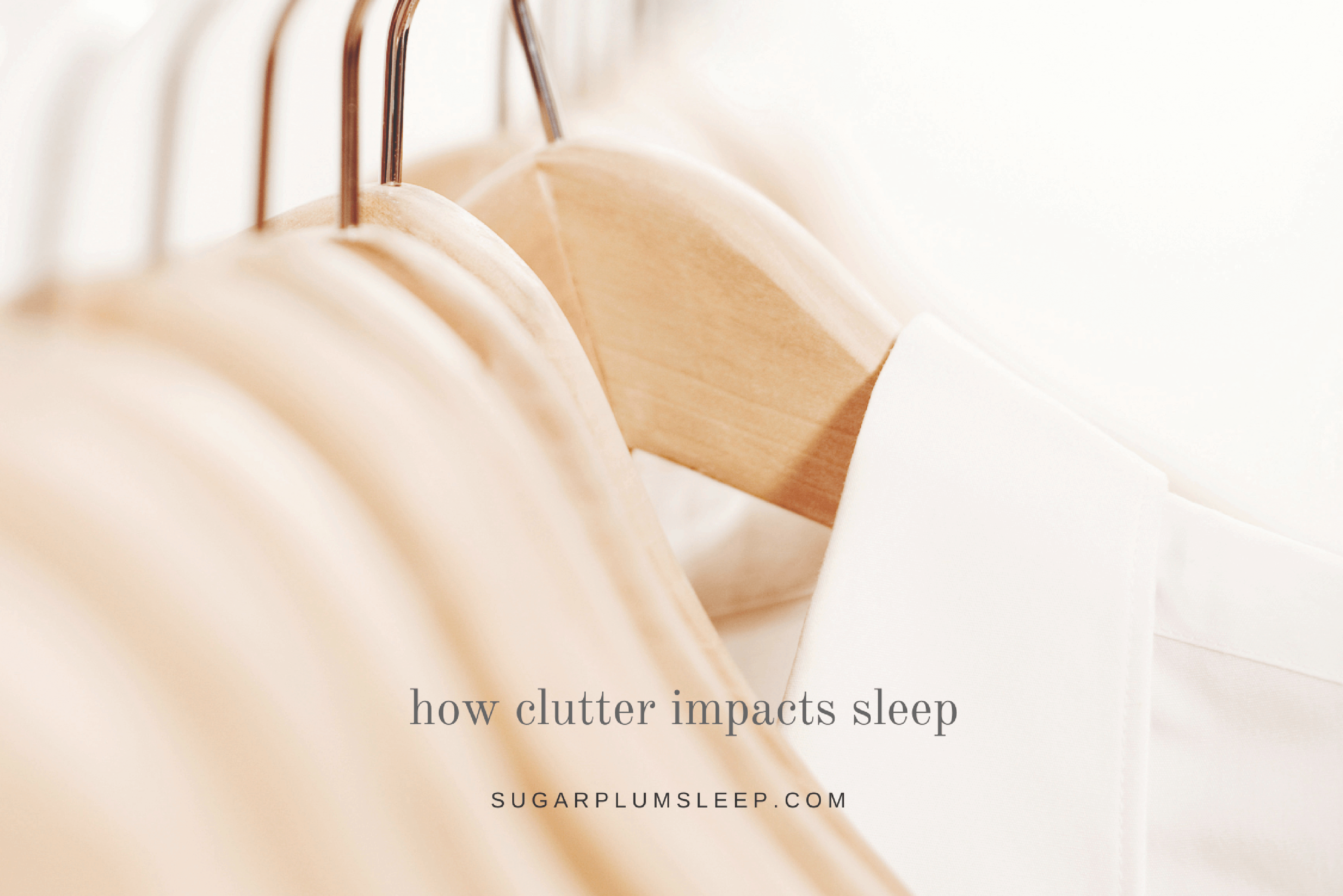Creating a restful sleep space starts with eliminating distractions in the bedroom. I’m a big fan of keeping clutter at bay in a child’s room to help maintain a calm and relaxing sleep environment. I think the same principles apply in our bedrooms. Clutter can restrict your ability to focus and process information. Clutter can also increase irritability and decrease productivity. Your challenge: organize, pair down, discard and donate to declutter your bedroom.

The science behind it
Is there science to support how a cluttered environment can lead to problems? You bet! Researchers at the Princeton University Neuroscience Institute published a report earlier this year regarding the benefits of uncluttered and organized living. The study mapped the brain’s responses to organized and disorganized stimuli. The results revealed how clutter can restrict your ability to focus and process information. The findings also demonstrated how clutter can increase irritability and decrease productivity.
Tips for keeping clutter under control
Give yourself enough time to declutter and organize and consider the following suggestions:
- Divide the room into zones for sleeping, relaxing and for clothes.
- Address one zone at a time before moving on to the next zone.
- Find new homes for items that are broken or no longer used. At the same time, connect with the solid waste management division in your community to understand what is available for curb side collection.
- Professional Organizers in Canada also has a great resource to connect you directly with charitable organizations and recycling agencies.
- Find a home for everything.
- Set aside time to de-clutter and re-organize on a regular basis.
- Incorporate room cleaning into your bedtime routine.
- And finally, evaluate whether or not you need something before you buy it. Do you really need it? Is there room for it?


Share Your Thoughts.